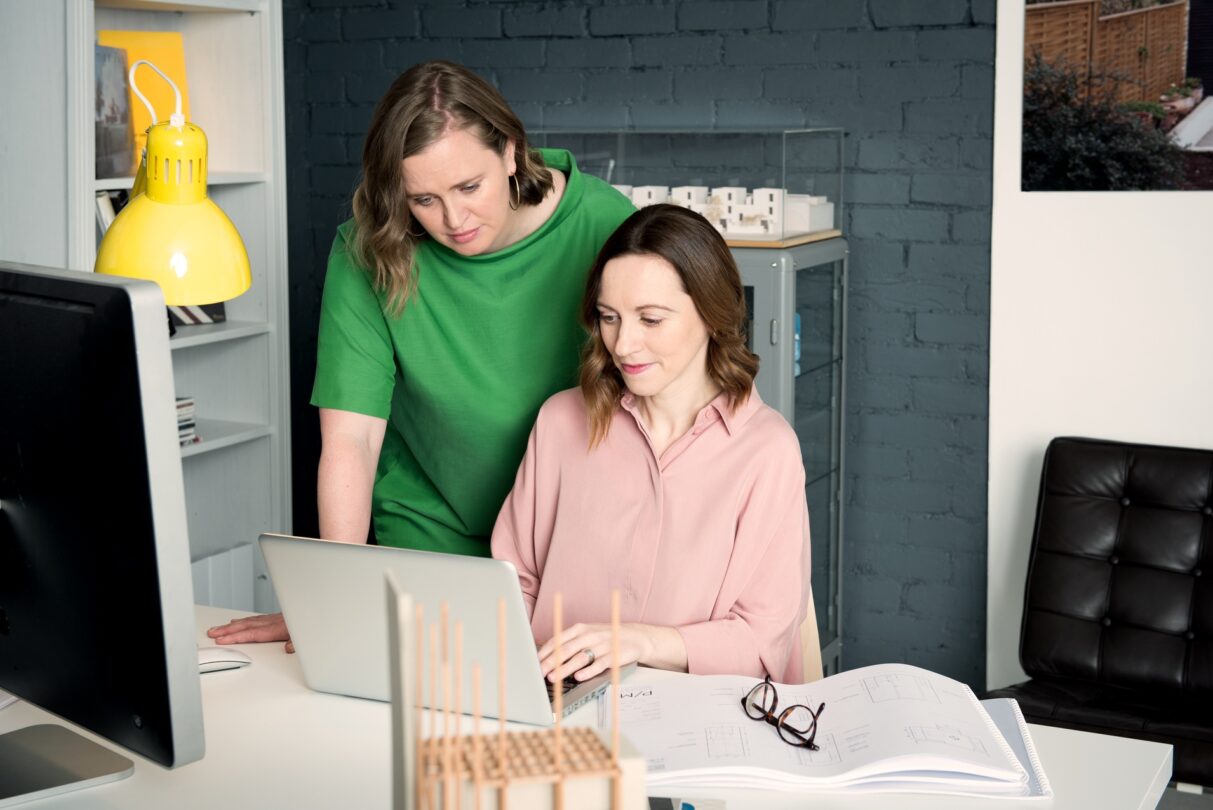Money Matters
Making Tax Digital for Income Tax: How accountants can prepare landlord clients
MTD for Income Tax is coming and landlords will be impacted. Learn how your practice can support them ahead of April 2026 and beyond.

Making Tax Digital (MTD) for Income Tax is a reality that will affect millions of individuals across the UK as of April 2026 and April 2027, depending on their income.
This is likely to include millions of landlords, among an even greater number of sole traders.
It means individuals running businesses or receiving rental income that they currently declare via the Self Assessment route will need to follow new rules:
- Using software to keep their relevant accounting records digitally.
- Sending updates, reports and declarations to HMRC about their income tax using software.
For those affected by MTD for Income Tax (also known as MTD for Income Tax Self Assessment, or MTD for ITSA), there’s an opportunity to bring their business finances into the modern age.
They can get an always-on view of their cash flow and tax position, for example.
They can avoid problems such as a cash flow shortfall, and take advantage of opportunities previously invisible to them.
For accountants, it provides business opportunities to deliver an even better service, as well as refreshing partnerships with clients.
But when it comes to those with income from property, there are special considerations.
Keep reading to learn more about how you can be ready to help clients like these.
Here’s what we cover:
- Why accountants should start preparing their landlord clients now
- 3 questions to ask yourself and your staff
- Tips to communicate the changes to landlords
- Making Tax Digital for Income Tax processes to make your clients aware of
- Final thoughts on support for landlord clients
Why accountants should start preparing their landlord clients now
UK landlords will be impacted by Making Tax Digital in 2026 if their rental income or combined rental and sole trader income is above the MTD for Income Tax threshold of £50,000.
If their rental income or combined rental and sole trader income is below £50,000 but above £30,000, they will be impacted from 2027.
We don’t need to tell you that landlords are not typical when compared to other types of business.
There’s substantial legislation around property letting, as well as ownership, that easily catches out the unwary.
Among the average accountant client lists, there’s a huge range of landlord business types too.
At one end of the scale are individuals who let a single property, or even just a part of one (such as rooms in their own residence).
Or they may own a share of a rental property that’s an inheritance, for example.
At the other end of the scale are those with extensive property portfolios who refer to themselves as professional landlords, and meet the definition used by HMRC (e.g. rental profits are £6,515 a year or more, they pay Class 2 National Insurance contributions, they rent out than one property, etc.)
Some practices may have incorporated clients that declare property revenue but MTD for Income Tax only affects those who receive direct personal income from their property rental (or a share thereof).
Rental income from those who manage their properties through an incorporated company isn’t affected by MTD for Income Tax (although might be affected by MTD for Corporation Tax, which will be introduced no earlier than April 2026).
There are perhaps three issues for accountants when it comes to landlord clients and MTD for Income Tax that should be considered now:
1. Skills and knowledge gaps
Providing accounting services for landlords can be specialised and as such may require knowledge and/or qualifications that may be lacking within your practice.
The first phase of MTD for Income Tax comes into effect in April 2026, so you might want to take this opportunity to spend some time completing relevant training courses.
Some of the training options are discussed below.
2. Lack of awareness
Many smaller landlords in particular will be entirely unaware of MTD for Income Tax.
Or they might believe it only affects sole trader income.
Many landlords might even be unaware of their existing requirements under Self Assessment, or even that property income is taxable.
April 2026 could therefore lead to a substantial influx of enquiries along with a requirement for retrospective accounting work.
3. Dated accounting methods
For some landlords, accounting for rental income may be an afterthought and their accounting methods very primitive.
They may not even use a spreadsheet, for example.
They may not be used to considering expenses vs income.
In other words, as well as helping them switch to using software, part of the work may involve tutoring landlords in basic income tax rules in addition to adopting processes for MTD for Income Tax.
There may be pushback from smaller-scale landlord clients who don’t understand why they suddenly need to adopt what seem to them complicated processes when they simply need to account for 12 incoming payments per year.
3 questions to ask yourself and your staff
Here are three questions that you might ask within your practice to kickstart preparing for MTD for Income Tax when it comes to landlords.
1. Is Making Tax Digital for Income Tax an opportunity for growth?
From the perspective solely of the accounting profession, the introduction of MTD of VAT across the past few years has provided increased business opportunities.
The same is certainly true for MTD for Income Tax, which is arguably more involved than MTD for VAT, and impacts a massively larger number of individuals.
While supporting sole trader and other clients will be an automatic choice, supporting a surge of landlord clients may not.
Over the next few years, phones in accountancy practices may become red hot with client enquiries once HMRC’s information campaign begins in earnest.
This provides a red pill/blue pill moment for practices.
Do you want to take advantage of the situation?
And, if so, are you prepared to make the investment to get the most out from the influx of landlord clients?
This will include areas such as marketing and training as well as simply ensuring you have the capacity to cope.
Or is it not for you?
You may decide against it for all kinds of reasons, such as the fact you have different specialisms and interests, or can’t spare the capacity above and beyond helping sole trader clients.
But there may still be business opportunities.
You may be able to arrange a referral and commission scheme with a fellow practice nearby that has a specialism in property income, for example.
And understanding the rules as they relate to property, so you can at least brief clients or prospective clients, is an unavoidable minimum.
2. Do you need to gain expertise in property accounting?
For landlords who live overseas, those who use the Rent a Room scheme to let part of their own home, or those who have furnished holiday lets, landlord accounting is rarely straightforward and often littered with caveats.
To brush up on your knowledge, start with HMRC’s Property Income manual.
Sections within this are numbered but the codes all begin with PIM.
It’s also worth investigating HMRC’s Property Rental Toolkit, which is specifically created to help tax agents and advisers in relation to income tax, and is updated yearly.
You may find the chartered body you belong to offers advice and guidance, typically available online.
Specific property tax-related qualifications tend to relate to the higher end of property ownership, such as corporate compliance with International Accounting Standards (IAS), but you should enquire.
Qualifications are also available from other bodies, including those aimed at estate agents, such as Propertymark.
Such ‘outsider qualifications’ may form part of a very compelling full-service offering for landlords, and would mean they don’t need to consult any other specialist.
This translates to higher fees that can be charged.
3. What kind of accountancy service offerings are desired by landlords in light of Making Tax Digital?
There’s an easy way to answer the question of what landlords require from an accountant.
Hit Google and pretend to be one seeking accountancy services.
See what others are offering.
Can you duplicate what you see? Can you add something to the mix relevant to your clients or locale, or use your specific skills or background?
As you might expect, areas such as tax planning and financial statement preparation are also key areas in a world where financing is a core business tool.
Similarly, many landlords hold property as retirement investments, so taking on landlord clients could boost take up of retirement planning service offerings.
Don’t forget that if you’re approached by landlords who have been less than diligent in their accounting until this point, you may need to put in significant effort squaring up their previous years (even decades) of accounts.
This can be labour intensive in and of itself, involving lots of negotiations with HMRC to find the best outcome, and could form a service offering of its own.
Tips to communicate the changes to landlords
As with any aspect of Making Tax Digital, the challenge for many practices will be communicating what’s required to relevant clients.
New client acquisition and onboarding processes might also have to be adjusted in light of a potential new raft of landlord clients around April 2026 and April 2027.
As with MTD for VAT, you can make extensive use of webinars, newsletters, videoconferencing calls, and more.
In the post-pandemic age, communicating sincerely without needing to be in front of clients (or prospective clients) is considered acceptable.
You should use every client communication point to speak to clients about MTD for Income Tax and aim to uncover the number of your clients that receive rental income and declare it via Self Assessment.
For example, you may add a note to your email signature about the coming changes, and invite enquiries.
Similarly, at client touchpoints for regular occurrences such as quarterly VAT returns, you should add in a discussion of MTD for Income Tax.
You may choose to market specifically to landlords too.
The sage marketing advice of fishing where the fishes are is useful here.
For example, you might consider everything from partnering with property auctioneers to have them refer clients on a commission basis, to seeing if there are billboard advertisement positions outside such establishments.
Similar partnerships might be possible with local high street estate agents, where you might be able to offer free workshops or webinars in partnership in return for gaining exposure.
Making Tax Digital for Income Tax processes to make your clients aware of
Converting existing landlord clients to MTD for Income Tax’s requirements should be considered a priority over the coming years.
Until April 2026, this involves education and moving clients over to compatible software, so they’re ready from day one.
These are the key points and new process requirements to convey to clients:
Software
In the words of HMRC, the landlord must use functional compatible software to do their income tax accounting.
If they use any additional software that handles relevant accounting data, such as a property management app, it should be digitally linked so the accounting data has a fully digital journey before it’s submitted to HMRC.
Many landlords have relatively simple accounting needs and may use a spreadsheet, at best, or even a paper ledger.
They may not even keep accounts and instead examine bank statements each January to make their declaration.
Needless to say, this must change or they will be breaking the law.
Basis period
Most of those declaring property income should already be using the tax year as their basis period, and should also be using cash accounting, so won’t be caught up in the need for basis period reform adjustments.
If any clients are using other basis periods, they will need to switch during the 2023/24 transition period, which will lead to a longer single basis period.
Keeping digital records
This will arguably be the first of many difficult communications you’ll need to make to landlord clients.
As far as smaller-scale landlords are concerned, they may have so few transactions—perhaps as few as 12 rent payments per year—that using software will seem like overkill.
But it’s a legal requirement regardless of how they feel about it.
It may help to include in the discussion accounting requirements around expenses, deposit payments, capital allowances, reliefs, and so on.
As mentioned, you may find yourself educating landlords about some of this.
Periodic updates (at least quarterly)
Again, the predictability of rental transactions and a limited number of them may make many landlords question the usefulness of providing quarterly updates.
But they’re an unavoidable legal requirement as part of MTD for Income Tax, and must be provided via software.
Discuss how this will be largely automated via software, and how there’s no need for complete accuracy in each update.
End of Period Statement (EOPS) and Final Declaration
Landlords with relatively simple affairs will probably see the EOPS and Final Declaration as a duplication of effort.
To assuage this concern, discuss how the Final Declaration relates to all the individual’s income, whereas the EOPS relates only to their rental income (and additional EOPS may be required for any other sole trader business operated by the individual).
Again, accounting software will automate much of the work required each January.
Final thoughts on support for landlord clients
The threshold for MTD for Income Tax will be £50,000 from April 2026, and £30,000 from April 2027.
This means a landlord with a monthly income (either from a property alone, or from both property and sole trader earnings combined) of £4,167 will fall within the scope of the first phase.
And with rents increasing rapidly (up 6% in 2021 alone), more and more landlords are sure to fall within scope of MTD for Income Tax even before its introduction date of April 2026.
In other words, there’s no getting away from the fact that MTD for Income Tax is a very real earthquake for the property rental sector.
You owe it to yourself to be fully ready in time, and have a duty of care in attempting to get clients up to speed too.
Editor’s note: This article was first published in March 2022 and has been updated for relevance.








Ask the author a question or share your advice